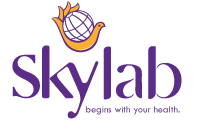No products in the cart.: ₹0.00
“Hope in a Vial: Celebrating World AIDS Vaccine Day
Research on an HIV vaccine has been an integral part of the National Institute of Allergy and Infectious Diseases’ (NIAID) scientific goal since the start of the HIV pandemic. Vaccines regularly improve public health. Although developing an HIV vaccine has been one of the most difficult scientific tasks to date, it has also prompted remarkable teamwork and creativity across our research strategy. To the worldwide community of researchers, activists, study participants, research staff, and funders who have worked tirelessly toward the development of an HIV vaccine that is safe, effective, long-lasting, and easily available, we extend our deepest thanks on this, the 27th year of HIV Vaccine Awareness Day (Saturday, May 18).
In order to determine the safety, immunogenicity, and effectiveness of potential HIV vaccine concepts, the National Institute of Allergy and Infectious Diseases (NIAID) performs fundamental, preclinical, and clinical research. Wherever HIV is most common, notably in the Global South, the HIV Vaccine Trials Network is funded by the NIAID to support clinical trials. Despite major efficacy studies yielding poor findings over decades of research, the field of HIV vaccine has learnt from its mistakes and improved with each iteration. More is known than ever before regarding the potential mechanisms of action of an HIV vaccine. To combat HIV, scientists are conducting discovery medicine trials and utilizing innovative vaccine technologies to find and activate the immune responses that have the best chance of success.
Research on the immune system’s reaction to HIV conducted by people living with the virus has taught us invaluable lessons that have advanced the development of effective vaccines. Antiretroviral medication isn’t necessary for certain people since their immune systems are so strong. A safe and effective preventative vaccination will likely require to stimulate and considerably amplify features of both cellular immunity (driven by T cells) and humoral immunity (driven by antibody-producing B cells), as we have discovered via their participation in clinical studies.
Targeting HIV with a vaccine is challenging due to the virus’s genetic variety; nonetheless, widely neutralizing antibodies do exist. Because they attach to regions of the virus that are mostly same across variations, exit Disclaimer (bNAbs) might be crucial to getting past that obstacle. In 1997, the NIAID Vaccine Research Centre (VRC) was established with the goal of expediting research on HIV vaccines. On this day, they isolated and produced a bNAb known as VRC01, which set off a chain reaction of research, including studies on passive antibody delivery and HIV vaccines.
Additional bNAbs targeting other stable locations on the extremely changeable surface of HIV have been uncovered by scientists since the VRC’s discovery of VRC01. In a proof-of-concept study that is influencing human vaccine development, scientists at the VRC demonstrated this year that a human bNAb named VRC34.01, which targets the fusion peptide on the surface of HIV, prevented monkeys from contracting simian-HIV. Scientists at the VRC and other institutes funded by the NIAID are employing a method known as germline targeting to precisely direct immature B cells toward maturation into B cells capable of producing bNAbs. In both animal and human investigations, this method is helping researchers elicit bNAbs of various types, including VRC01-like antibodies.
The development of HIV vaccines by cellular immunological methods is another area of active research. According to research out of the Laboratory of Immunoregulation at the NIAID, in order for an HIV vaccine to be both safe and efficacious, it will most likely have to elicit robust responses from CD8+ T cells. A clinical trial evaluating the safety and immunological response produced by VIR-1388, a T-cell based vaccine candidate utilizing a cytomegalovirus (CMV) vector, has been initiated by the National Institute of Allergy and Infectious Diseases (NIAID) and its collaborators. This method avoids infecting research participants by delivering HIV vaccine components to the immune system using a weakened strain of CMV. Since 2004, with financing from the NIAID, the CMV vector technology has been developed.
The importance of HIV vaccine development and discoveries to the larger areas of immunology and vaccinology is also brought to our attention. The remarkable quick discovery of the mRNA vaccines that halted the COVID-19 pandemic and save millions of lives was made possible by the efforts of Drew Weissman, M.D., Ph.D., and Katalin Karikó, Ph.D., who were bestowed the Nobel Prize for Physiology or Medicine in October 2023. There is a connection between the NIAID and the National Institutes of Health among both Nobel laureates. Funding from the National Institute of Allergy and Infectious Diseases (NIAID) allowed for a significant advancement in our knowledge of how immune cells detect and respond to various types of messenger RNA, which in turn allowed for this study. Humans are currently undergoing preliminary testing of HIV vaccine candidates based on messenger RNA (mRNA).
When it comes to developing an HIV vaccine, NIAID has set its sights on a few specific goals. Research is currently underway to determine the best way to elicit bNAbs and T-cell responses from vaccines, with the ultimate goal of triggering both with a single dose. More data is required to identify the specific immunologic markers that translate to a protective effect from an HIV vaccination, which would improve the accuracy of this research. In the meanwhile, researchers need to discover new adjuvants that can lengthen and enhance immune responses, optimize vaccination formulations and dosage, and move forward with promising ideas through clinical trials. Results from studies on HIV vaccines will be useful for a long time to come, not only in the fight against the virus but also in finding a cure and developing more comprehensive medical countermeasures for use in the case of a pandemic.
Investing in the next generation of HIV clinical researchers and community leaders is crucial to the development of an HIV vaccine. Supporting the development of early-stage HIV scientists’ careers and the long-term community collaborations that enable this vital research is a top priority for the National Institute of Allergy and Infectious Diseases (NIAID).
As we celebrate HIV Vaccine Awareness Day, we must not lose hope that a safe and effective HIV vaccine will soon be within reach, thanks to ground-breaking scientific discoveries and the combined efforts of many global partners.
Healthcare to Home can provide home health professionals in Trivandrum to collect laboratory samples at the patient’s discretion in their Home or office. All of you have been able to complete the appointment form or send an appointment request via WhatsApp 9778104936 – Pettah,98951 04396 -Paruthikuzhi,9895834396-Anayara
Website : www.skylabclinic.com
| Customer Friendly | Affordable Price Test | Convenience | Online appointment | Home Collection Available | Renal Function Test | Thyroid Function Test | Complete Blood Count Test | Liver Function Test | Fasting Blood Sugar Test | Post Prandial Blood Sugar Test | HIV Test | HBSAG Test | HAV Test | Hepatitis Test | Widal Test | Dengue IgM Test | Ferritin Test | Fasting Insulin Test | Electrolytes Test | Vitamin D3 | Vitamin b12 | Calcium Test | Phosphorus Test | Testosterone Test | Nursing Care | Home collection Available | Laboratory in Sasthamangalam | Personalized Health checkup | Skylab Medical Laboratory | Best medical lab in Kazhakuttam | At your convenience | Medical lab in Anayara | Laboratory in Kuravankonam | Laboratory in Akkulam |Laboratory in Pattom | Laboratory in Vellayambalam | Laboratory in Sasthamangalam| Laboratory in Muttada | Laboratory in Kesavadasapuram | Laboratory in Kazhakuttam | Laboratory Near Asset Homes| Near Hycinth | Near Artech |Near Nikunjam | Laboratory in Kovalam | Laboratory in Kowadiar |

